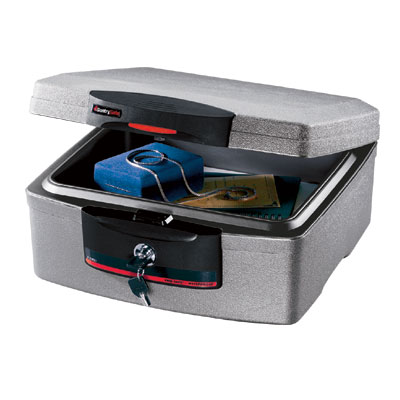One of my biggest fears is to lose everything I own in a fire. In an old LegalZoom Newsletter I received, an article by Sherry Ciurczak, titled 10 Things You Must Keep in a Fireproof Safe was presented. The information from is article is very important for everyone to consider.

In fact, the US Fire Administration estimates that fires nationwide caused more than $11 billion in property damage in 2007. Although 91% of Americans agree it's important to prepare for a disaster, only slightly more than half have taken steps to do so.
One great way to make sure you're prepared is to get a fireproof safe. What should you store it in? Here's a list of the top 10 suggested items to keep in your fireproof safe:
- Current insurance policies and agent contact information. You'll need this information right away if your house suffers damage in a fire.
- Your family's passports and original birth certificates. These can be a hassle to replace and will come in handy to establish your identity for other purposes.
- A list of your family's doctors, prescription medications, and contact information for all pharmacies you use. You may need these to get new supplies of medications you use on a regular basis.
- CDs or an external hard drive containing digital copies of all family photos.It's a good idea to scan all older family photos and keep a digital copy of them as well. Your family memories as preserved in photos are irreplaceable.
- Safety deposit box keys. If you store valuables at the bank, you'll want to make sure you can access them in the event of an emergency.
- Important papers related to investments, retirement plans, bank accounts, and associated contact information. You may need ready access to funds.
- Information on your outstanding debts, due dates, and contact information.It's important to keep tabs on your finances and protect your credit, even if you're displaced by a fire.
- Original Social Security cards. These can be difficult to replace and may be needed to establish eligibility for aid.
- Copies of your important legal documents, including powers of attorney, living wills, health care proxies—both for yourself and for anyone else for whom you are designated attorney-in-fact or health care surrogate. Having access to these can help ensure the protection they were created to provide.
- Copy of family wills and all wills in which you are designated the executor.It's important to safeguard wills so that loved ones are taken care of.
Article Taken from here

